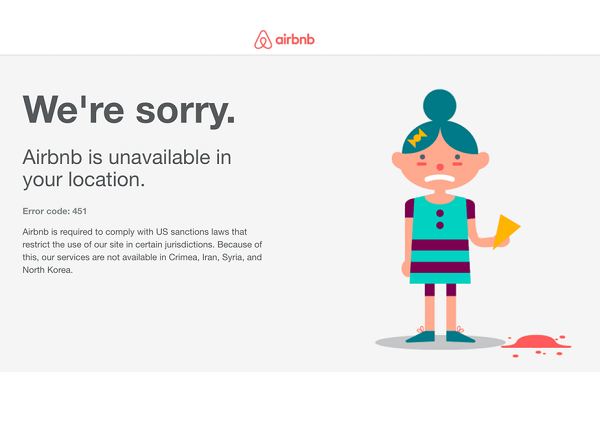
When a website blocks access, it sometimes delivers a notice saying so. (Screenshot from airbnb.com, CC BY-ND)
What the internet looks like to users in the U.S. can be quite different from the online experience of people in other countries. Some of those variations are due to government censorship, but private companies – many based in the U.S. – are also building obstacles to users from around the world who want to freely explore the internet.
A recent article by U-M’s Allison McDonald, a Ph.D. student in computer science and part of a team of internet freedom researchers, examines how geoblocking is increasing and affecting users from almost every country in the world. “Geoblocking cuts people off from global markets and international communications just as effectively as government censorship,” writes McDonald. “And it creates a more splintered internet, where each country has its own bubble of content and services, rather than sharing a global commons of information and interconnection.”
